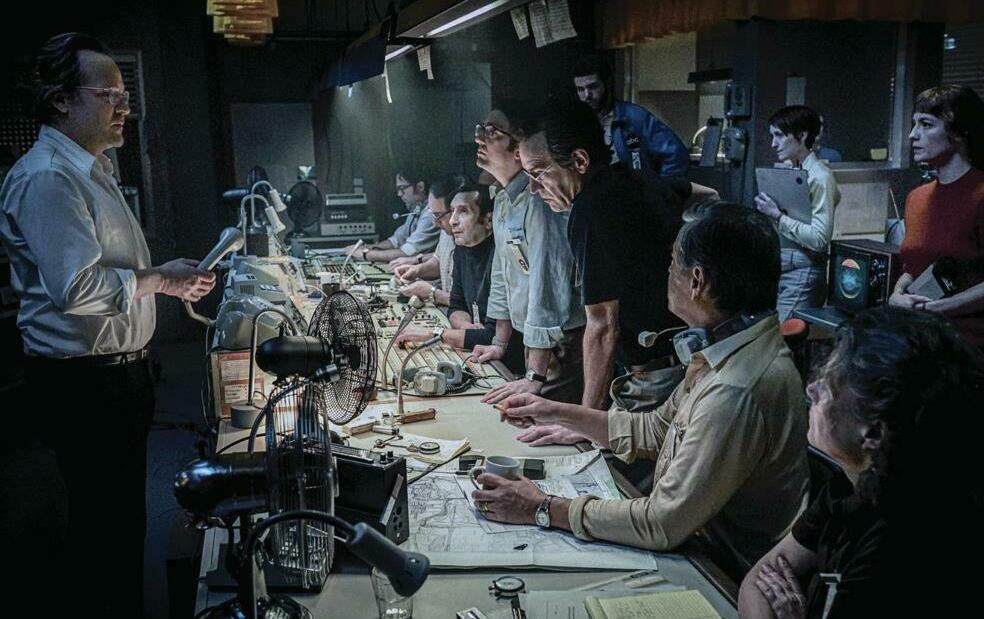The camera was quickly turned off, but Mason's indelible memory of that confrontation lives on, not only in his mind but also in the new movie September 5, in limited theaters Dec. 13. Directed by Tim Fehlbaum, the drama recounts how journalists broadcast the act of terror live to millions.
It's the second feature film released this century about the Munich massacre, following Steven Spielberg's Oscarnominated 2005 historical epic Munich. And the 1999 film One Day in September won the Oscar for best documentary feature. But unlike those films, September 5 is, like Spotlight, The Post, and She Said in recent years, a journalism movie at heart. And its arrival is timely, given the prominent role of hostages in Israel's war with Hamas in Gaza.
The movie is constructed around the ABC Sports team's about-face from athletics to terrorism, centering the perspective of the broadcasters who sneaked cameras into the Olympic Village to film the frenetic scene. Mason, one of the producers calling the shots that day, played in the movie by Past Lives actor John Magaro, consulted on the script co-written by Fehlbaum, Moritz Binder, and Alex David. As he recalls, "I remember thinking, good Lord: We're supposed to be watching Mark Spitz go for seven gold medals and Olga Korbut-the new face of Russian gymnastics-and I'm now watching people crawl across a roof getting ready to stage a military assault on terrorists."
THE 1972 HOSTAGE CRISIS took place five years after Israel had demonstrated its military superiority in the SixDay War, and Palestinian militants relied on hijackings and terrorist attacks to draw attention to their cause. On that late-summer day in 1972, the Palestinian militant group known as the Black September Organization called for the release of 234 prisoners-some of whom had been imprisoned for years in Israeli and German jails, threatening to kill one hostage every hour until their demand was met.
The goal of the Munich attack "was to put the Palestinian situation on the largest possible world stage," says David Clay Large, author of Munich 1972: Tragedy, Terror, and Triumph at the Olympic Games.
"The Olympics would do just that." Meanwhile, in addition to inflicting a devastating loss of life, the hostage crisis would become a major source of embarrassment for Germany, less than three decades after the end of the Holocaust. As Large explains, "One of the most pressing concerns for the Munich organizers was not to look like the old Germany-of concentration camps and watch towers--or the Berlin Games of 1936, which had heavy security, armed guards. They wanted to look like the new, joyful Germanytransparent, democratic, open."
Mason was just one of several journalists who expected to be covering sports that day in Munich but were suddenly called upon to redirect their training toward reporting on an act of terrorism. One colleague, Marvin Bader (played by Ben Chaplin in the movie), was a Jewish American journalist for whom an assignment in the country where the Holocaust took place brought deep discomfort. According to Mason, "Marvin was a deeply religious and sensitive person, and so having spent a number of years in Germany doing shows like this-like ski jumping-to go back to Germany time and time again was not easy." As the movie depicts, Mason's colleague from the news division, Peter Jennings, dressed up lik...


